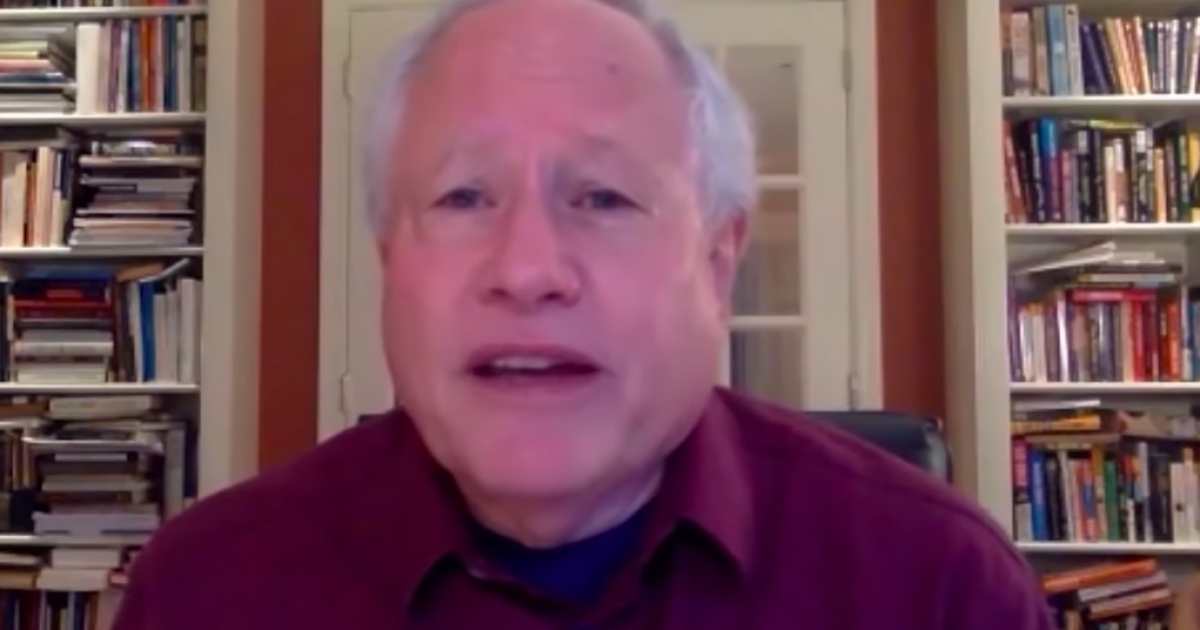
American politics has an uncanny ability of rewarding incompetence.
After wreaking havoc when given positions of power, failed political pundits and government officials end up getting more prestigious roles further down their career. Failing forward at its worst.
One can only imagine how such conduct would be treated in the private sector, the one place that repeated incompetence will result in an individual receiving a pink slip.
Well, this doesn’t apply to the likes of Bill Kristol. Now the Editor-at-Large at the Bulwark, Kristol has been the leading voice of neoconservative foreign policy views in his multiple decades of political punditry. Kristol gained notoriety for his pro-Iraq War advocacy during the administration of George W. Bush.
However, just like the war became hated, Kristol’s reputation took a big hit. He became a pariah in the Republican Party and soon pivoted to the Democrat Party, which has become a new home for disgraced Bush era officials and pundits, in order to continue pushing his neocon agenda.
Despite Kristol’s party change, his support for the American empire has not wavered. In fact, he recently even suggested that the U.S. annex Cuba. In a tweet he posted on March 22, 2021, Kristol commented, “One reason I’m for DC statehood: The growth in size of the republic–and our distinctive manner of growth, admitting states with equal status–has always been a sign of our vigor. 60 years at 50 states is enough. Time for DC, Puerto Rico, Cuba (as soon as it’s free), 1 or 2 more?”
One reason I'm for DC statehood: The growth in size of the republic–and our distinctive manner of growth, admitting states with equal status–has always been a sign of our vigor. 60 years at 50 states is enough. Time for DC, Puerto Rico, Cuba (as soon as it's free), 1 or 2 more?
— Bill Kristol (@BillKristol) March 22, 2021
Conservative media strategist Giancarlo Sopo quickly pointed out some of the wishful thinking that Kristol displayed:
“This comment is completely devoid of any understanding of Cuban political history. Cuba’s most consistent political ideology is nationalism. From Martí and Maceo to Grau, Chibás, and yes, sadly, the current regime. Cubans will never agree to becoming a U.S. state.”
This comment is completely devoid of any understanding of Cuban political history.
Cuba's most consistent political ideology is nationalism. From Martí and Maceo to Grau, Chibás, and yes, sadly, the current regime.
Cubans will never agree to becoming a U.S. state. https://t.co/YBCRwi3iLk
— Giancarlo Sopo (@GiancarloSopo) March 22, 2021
Sopo added, “You’d be hard-pressed to identify major ideological differences between Cuban political factions pre-59. Like other LatAm countries, the parties were largely organized around personalities. The most consistent ideological feature of Cuban politics has been nationalism.”
You’d be hard-pressed to identify major ideological differences between Cuban political factions pre-59.
Like other LatAm countries, the parties were largely organized around personalities.
The most consistent ideological feature of Cuban politics has been nationalism.
— Giancarlo Sopo (@GiancarloSopo) March 22, 2021
Further, Sopo put forward an interesting thought experiment regarding the potential political implications of annexing Cuba:
“I don’t favor this, but if we’re engaging in BS hypotheticals… Cuba becoming a state would make interesting GOP politics. Cubans have historically been social democratic nationalists (not to be confused with socialists). It may strengthen the post-lib conservative movement.”
I don't favor this, but if we're engaging in BS hypotheticals…
Cuba becoming a state would make interesting GOP politics.
Cubans have historically been social democratic nationalists (not to be confused with socialists). It may strengthen the post-lib conservative movement.
— Giancarlo Sopo (@GiancarloSopo) March 23, 2021
Kristol’s annexation fantasy shows that he has no interest in improving the lives of Americans and instead wants the U.S. to expand the reaches of its empire.
America simply doesn’t need to add a foreign jurisdiction into its political umbrella. Bigger is not always better, and with America’s multitude of problems, further territorial expansion will not solve any of its structural issues, and could potentially create even more problems in the near future.
In sum, Kristol’s recent comments shows that he is still very much an imperialist who believes America’s borders are not fixed and must be constantly expanded wherever possible.
During a time of great social crisis, even entertaining the idea of bringing more states into the Union is the textbook example of putting the cart before the horse. America needs to look inward not outward in these troubling times.



